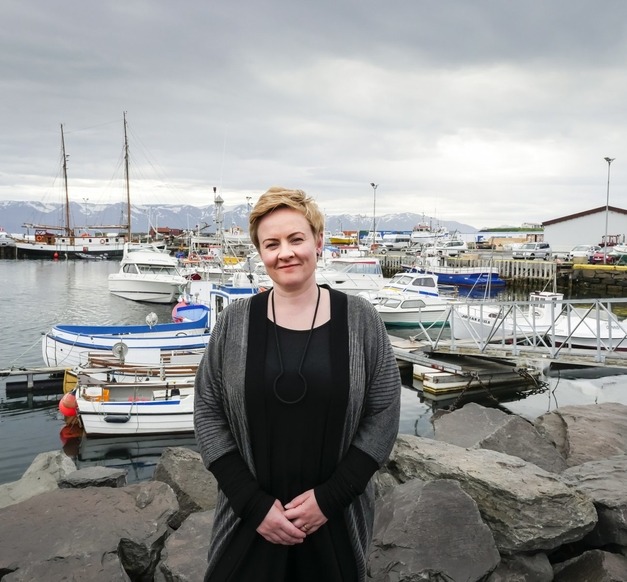Lilja Rögnvaldsdóttir, project manager at the UI Institute of Regional Research Centres in Húsavík
Tourism has grown enormously in Iceland in recent years, and the number of tourists has been a key figure in economic growth in Iceland. It is thus vital to place increased emphasis on research in this important sector. To that end, diverse research isconducted in tourism at the University of Iceland. An example of this is a study at the UI Institute of Regional Research Centres in Húsavík, where travel behaviour and tourists' expenditure in selected Icelandic destinations are monitored. This is a collaboration between the UI Institute of Regional Research Centres in Húsavík, and the Icelandic Tourism Research Centre established in 2013.
"In order to work systematically towards regional strategic planning and development in tourism we have to have reliable data from each destination as a basis for further development. It was in fact lack of such data that was the main reason for this study." Says Lilja Rögnvaldsdóttir, project manager at the UI Institute of Regional Research Centres in Húsavík.
Lilja Rögnvaldsdóttir
"There are many things we need to study further and monitor regularly in order to evaluate the development of this industry in each destination and react to changes when necessary."

"The results show that the travel behaviour of foreign guests varies significantly from one destination to another. This underlines the importance of studying each area independently."
Lilja says that the average spending of international tourists was four times higher in Húsavík than in Siglufjörður where tourists seem to spend the least. "The recreation offered plays a big part in this context. Tourists spent three times more in Mývatnssveit than they did in Siglufjörður; and the number of cruise ships was higher in Ísafjörður than in any of the other research areas."
Lilja says that the reasons for visiting, and the attraction of each destination are marked by the specialities of each area; the choice is thus determined by factors such as culture, location, recreation or landscape. "There are many things we need to study further and monitor regularly in order to evaluate the development of this industry in each destination and react to changes when necessary."
Lilja says that research in tourism is vital for all development in the field.
"We seek answers to the unknown through our research. This is essential to further develop and build-up our environment and community. Tourism in Iceland is in dire need of systematic development. There is thus great need for research and reliable data in the field."


